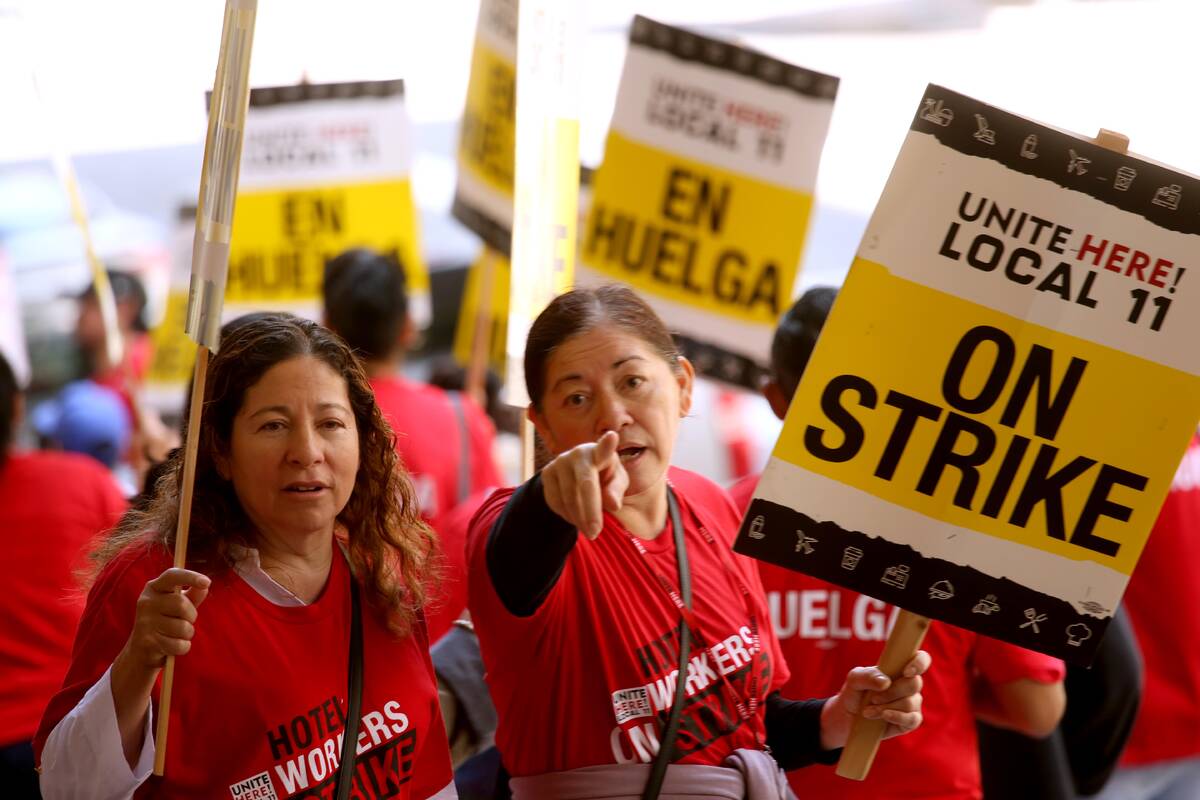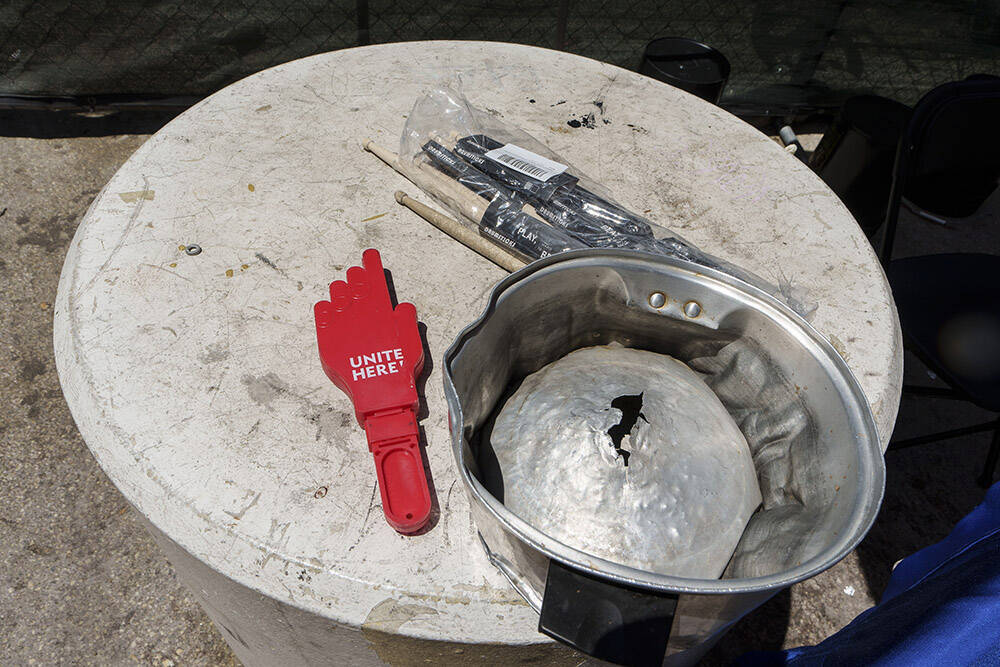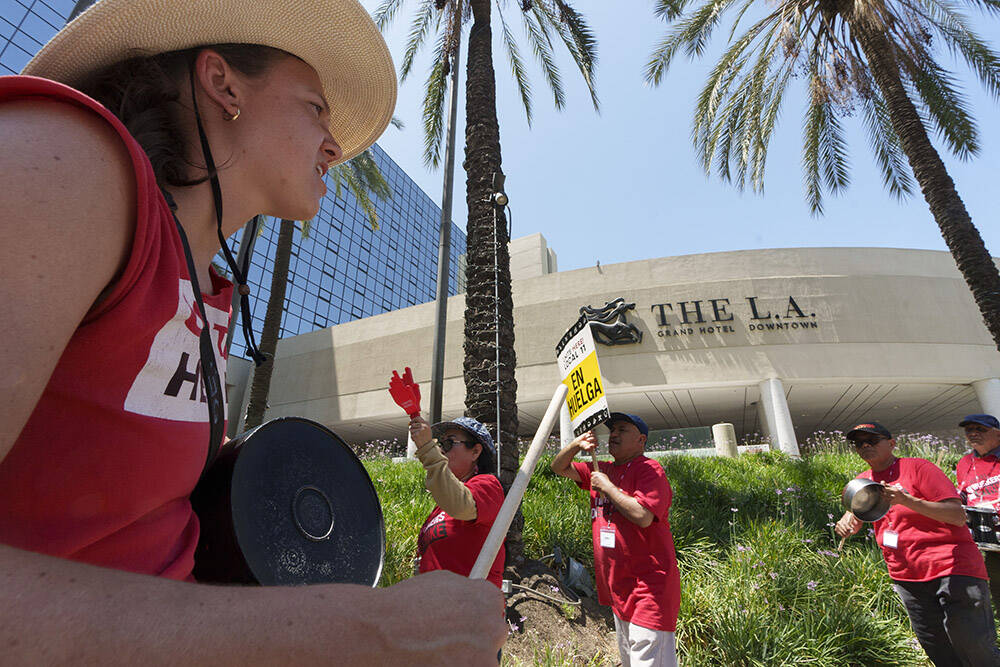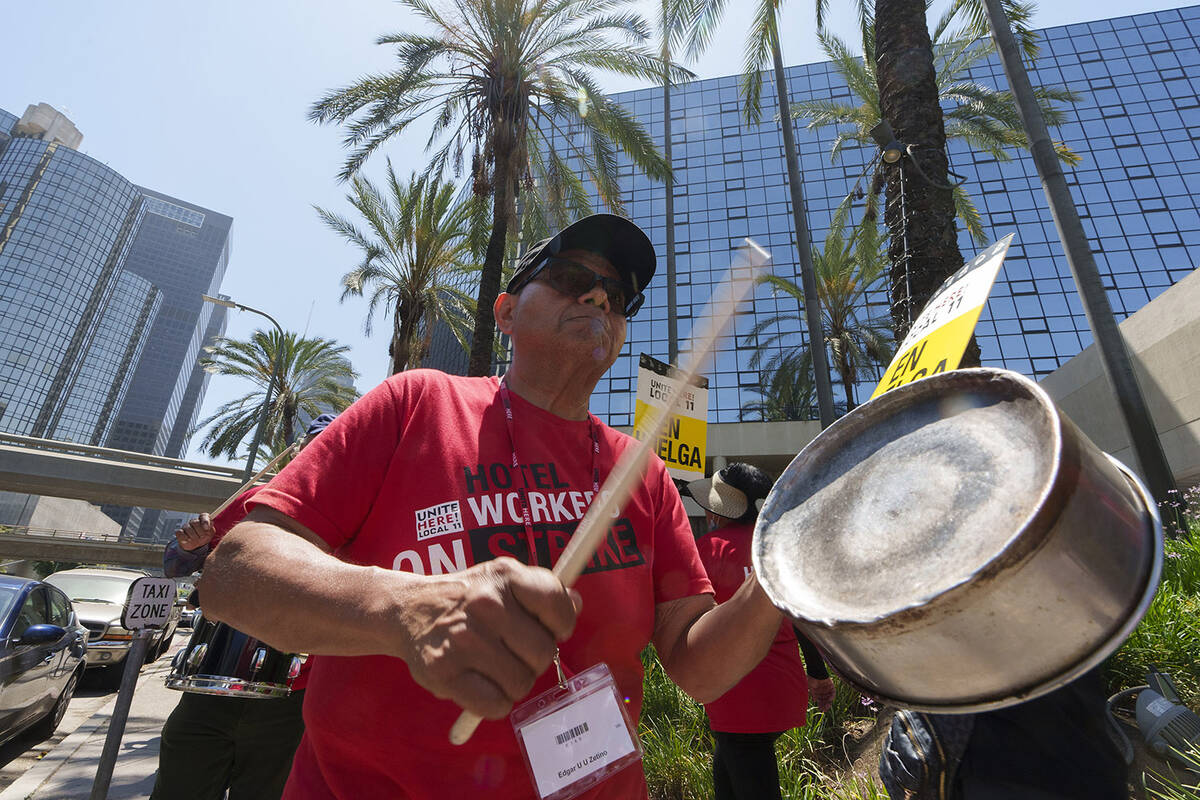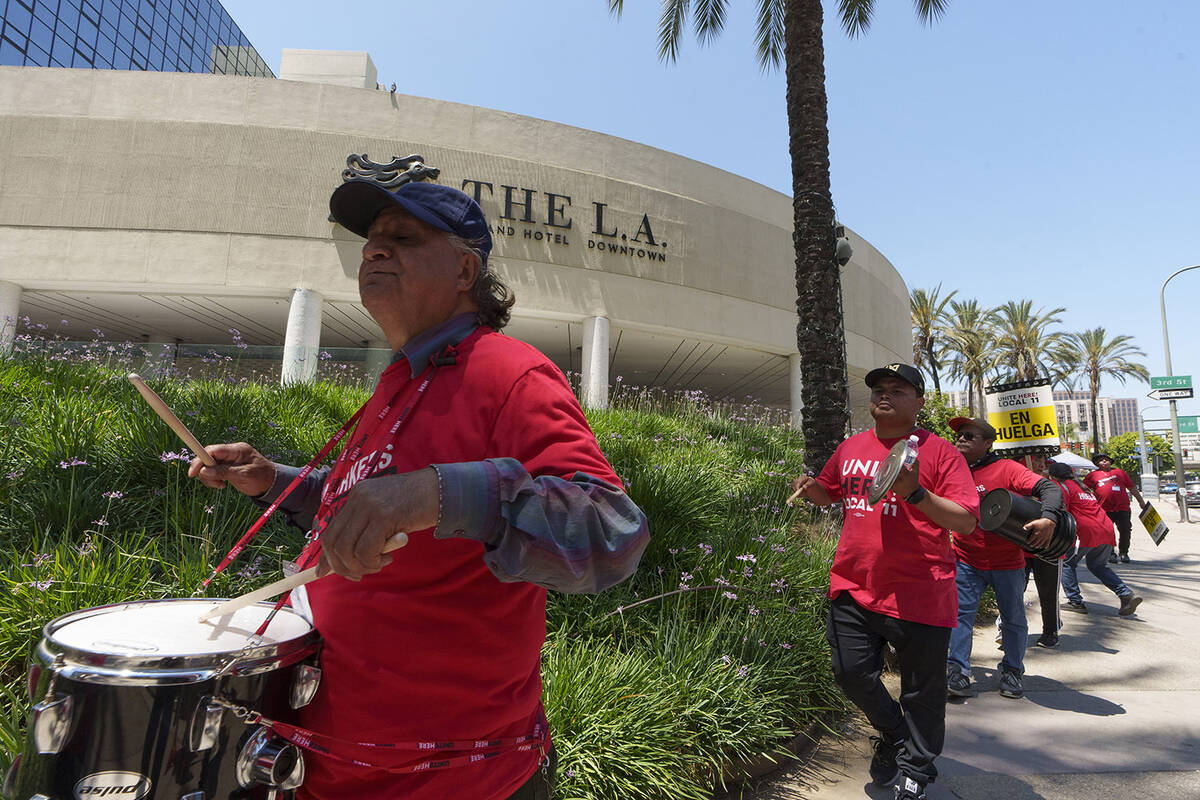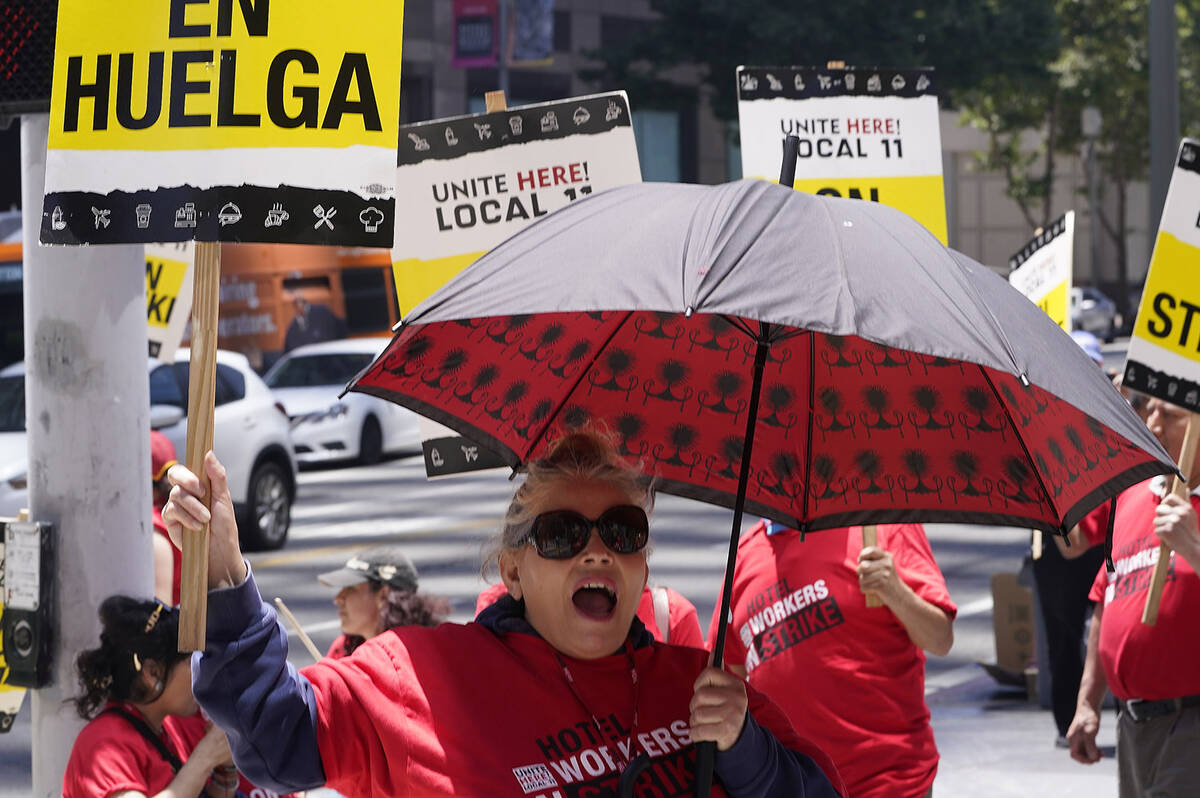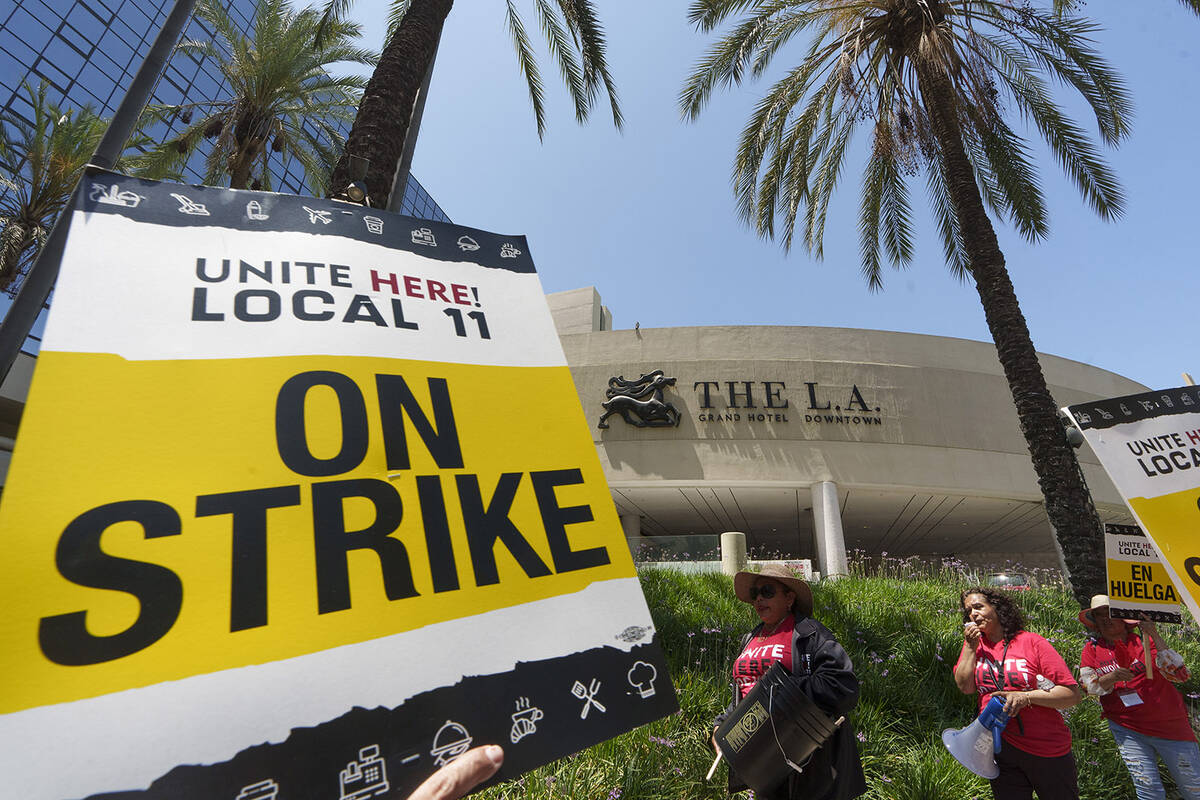Southern California hotels say hospitality union is unlawfully pushing housing agenda
LOS ANGELES — Amid tense negotiations over new contracts for thousands of local hotel housekeepers, receptionists and cooks, a group of Southern California hotels filed an unfair labor practice charge accusing Unite Here Local 11 of striking over policy proposals that have “nothing to do” with the employees it represents.
The group has taken issue specifically with the union’s demands that hotels support housing initiatives, both politically and materially. In negotiations, the union has asked hotels to publicly endorse a measure set for the 2024 ballot that would require hotels in Los Angeles to rent vacant rooms to unhoused people. The union has also urged hotels to agree to impose a 7% fee on all guest room sales to create a new fund that would assist hospitality workers in obtaining affordable housing.
Keith Grossman, an attorney with Hirschfeld Kraemer, one of two firms representing the hotel coalition, said in an emailed statement Thursday that pushing for such provisions to be included in a contract settlement and striking over them is “not only unlawful, but it is also a real obstacle to reaching agreement on a contract.”
“If the union really wanted an agreement to help the employees, it would have dropped these issues long ago instead of taking employees out on strike over them,” Grossman said.
The hotel bargaining group, which represents 44 hotels in Los Angeles and Orange counties, filed the unfair labor practice charge June 30 with the National Labor Relations Board. The union bargained in bad faith by striking over “nonmandatory subjects,” the group argued in the filing.
The accusations come as thousands of workers at more than a dozen hotels involved in negotiations returned to work Wednesday after three days on strike over wages and benefits, which coincided with the July Fourth holiday weekend.
Union officials dismissed the accusations.
Unite Here Local 11 co-President Kurt Petersen said the union’s proposals aim to help Angelenos most affected by the housing crisis — including hotel workers who are frequently priced out or face eviction in the costly areas around where they work.
Coming off a busy weekend where downtown L.A. hotels could charge $600 or more per night, the hotel group’s claim “rings really hollow,” Petersen said.
“I’m not sure what they are arguing, because we are allowed to bargain over anything we want at the table,” he said. “They should stop paying their lawyers … to file frivolous complaints and instead pay their workers a living wage.”
Unite Here Local 11 gathered enough signatures for what is known as the Los Angeles Responsible Hotel Ordinance to place it before voters on the March 2024 ballot. Hotel owners and operators have vigorously opposed the measure, whose provisions include requiring hotels to report vacant rooms they have to the city, which would pay for and distribute vouchers to homeless Angelenos to be housed in those rooms.
The proposal would also link the development of some new hotels to affordable housing construction.
Hotel businesses and industry groups such as the Hotel Assn. of Los Angeles has argued the ordinance would place undue burden on owners and operators and their employees, and does not provide clarity on how social services would be offered to voucher recipients or on liability issues.
Unite Here Local 11 and roughly 60 Southern California hotels where contracts expired June 30 at midnight have been in talks to hash out an agreement.
The 7% fee called for by the union would create a Hospitality Workforce Housing Assistance Trust Fund, to be jointly administered by labor and management representatives. Its purpose would be to provide temporary “bridge” housing and emergency loans to needy hospitality workers, as well as fund affordable housing development projects.
The union outlined its demands regarding the fee in a April 20 proposal reviewed by the Times. The union estimates the fee could generate $150 million annually.



